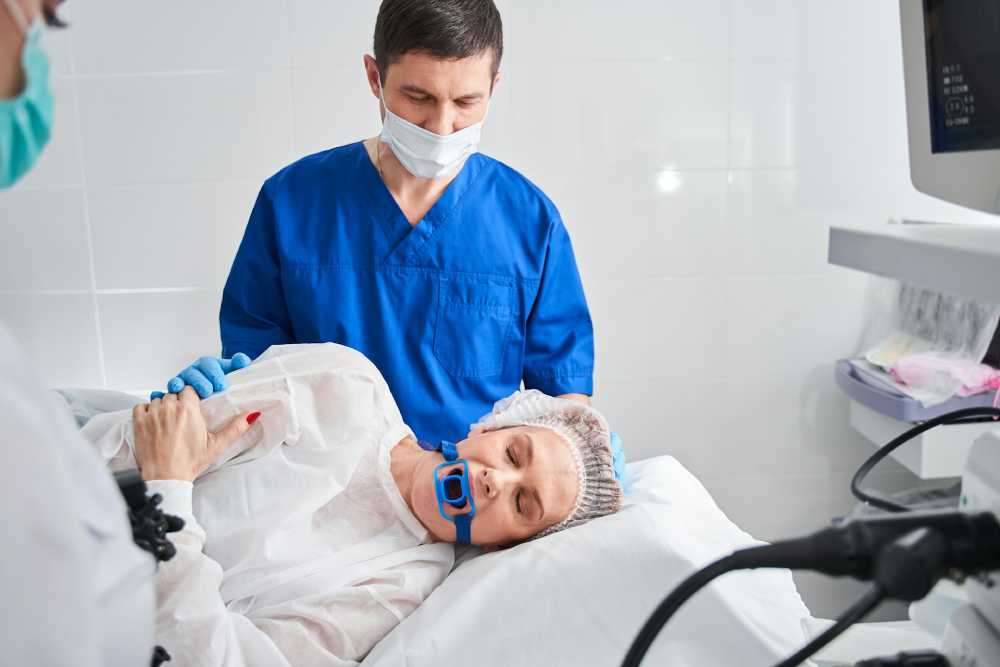Understanding the Importance of Screening for Colon Health
Stomping grounds for vital digestive processes, the colon is the unsung hero of our gastrointestinal tract. Tasked with reabsorbing fluids and processing waste, this essential organ is the final arbiter of what our bodies hold onto and what they release.
Therefore, maintaining the health of this crucial conduit isn’t just about comfort—it’s about overall health. Regrettably, such a critical component of our well-being is often overlooked until problems arise. The peace of mind that comes from a routine screening colonoscopy can catch potential issues before they bloom into severe health concerns.
The Significance of Early Detection
When discussing colon health, the adage “an ounce of prevention is worth a pound of cure” rings truer than ever. Screening tools such as colonoscopies are not just diagnostic—it’s a preemptive strike against one of the most clandestine assailants within the body: cancer.
Colorectal cancer can be covert, developing with stealth inside an otherwise healthy-feeling individual. But when caught early, the survival rate skyrockets, a testament to the power of early detection. Such insights underscore why embracing preventative screenings can be one of the smartest decisions we make for our long-term health.
Screening Colonoscopy: What to Expect
For many, uncertainty shrouds the idea of a colonoscopy, but understanding the procedure can demystify it. Often considered the most challenging, preparation involves adhering to a special diet and taking a bowel-cleansing substance. The procedure itself is typically painless, thanks to sedatives and pain relievers.
A flexible tube with a video camera, known as a colonoscope, navigates the colon’s length, offering the gastroenterologist a clear view to spot any polyps or anomalies that may require further attention. The procedure is typically over within 30 to 60 minutes, making it a brief yet potent protector of wellness.
Screening Guidelines and Recommendations
Not everyone walks the same path regarding colon health—factors like age, family history, and genetics play considerable roles. Organizations such as the American Cancer Society provide clear recommendations for screenings, generally suggesting that people at average risk begin at age 50.
However, consulting directly with healthcare providers is critical as individual circumstances might necessitate a different timeline. By aligning oneself with these guidelines, screening becomes a resolute guardian in the fight against colon-related illnesses.
Advances in Colonoscopy Techniques
The sphere of colonoscopies is not static; it surges forward with every technological leap. Enhanced imaging capabilities, magnification techniques, and even AI-assisted polyp detection have revolutionized this field, bringing about a renaissance of precision and patient-friendliness in the procedure.
Improved equipment gives gastroenterologists unprecedented clarity, allowing for meticulous examinations and interventions.
Understanding Risk Factors for Colon Diseases
Knowledge is power, especially in the realm of health—and understanding the risk factors for diseases of the colon can arm individuals with the power to shape their destinies. Lifestyle choices, such as diet, exercise, and smoking cessation, intertwine with genetic factors to influence one’s risk profile.
Acknowledging and adapting to these factors are monumental steps toward taking control of one’s colon health and, by extension, one’s quality of life.
The Psychological Impact of Screening
Tracing the intricate web of the mind-body connection reveals that the psychological impact of health screenings is substantial. Dealing with the prospect of undergoing a screening colonoscopy can conjure a barrage of anxieties for many people.
Recognizing the validity of these emotions and having strategies for managing them—such as mindfulness, education about the procedure, and support groups—alleviates the mental burden. The more healthcare providers and communities normalize these conversations; the more fortified individuals become in addressing their health needs.
Post-Colonoscopy: Interpreting Results and Next Steps
The relief from concluding a screening colonoscopy is palpable, but what follows is equally critical. The post-procedure dialogue between patient and doctor provides an opportunity to understand the findings and chart a course for the future.
Normal results can be a ticket to several years before the next screening, while abnormal findings may navigate patients down a pathway of additional tests or treatments. Transparency and clear communication in this stage are crucial to ensuring patients feel confident and informed about their health trajectory.
Myths and Facts About Colon Health Screenings
Misinformation can be a formidable foe in public health, and myths surrounding colon health screenings have been particularly tenacious. Concerns over discomfort, embarrassment, and the procedure’s invasiveness often lead to unwarranted fears.
However, reputable articles help dismantle these myths by providing factual information. Such debunking is not just about setting records straight; it’s about empowering individuals with knowledge so they make informed decisions about their health screens.
The Future of Colon Health: Predictive Analytics and Personalized Care
Looking forward, the merging of medicine and technology paints a thrilling picture of the future of colon health.
The incursion of big data analytics into healthcare heralds a new age of personalized medical care where screenings could be tailored to an individual’s risk profile. This data-driven approach stands to transform the landscape of preventative care, enhancing the effectiveness of health interventions and promising a bright future for colon health management.




